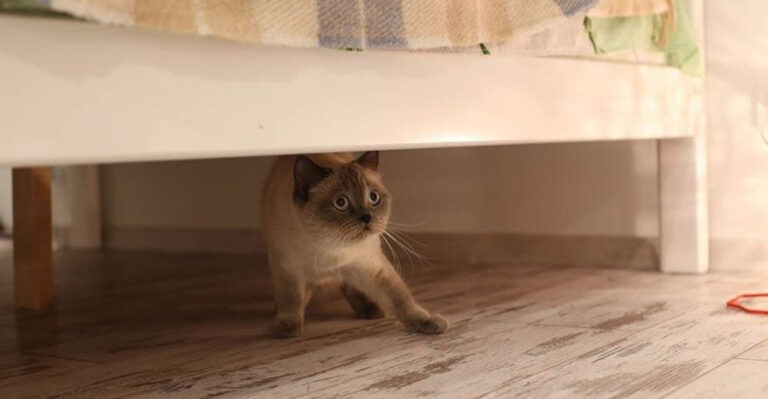15 Smells Cats Can’t Stand (And 5 Scents They Adore!)
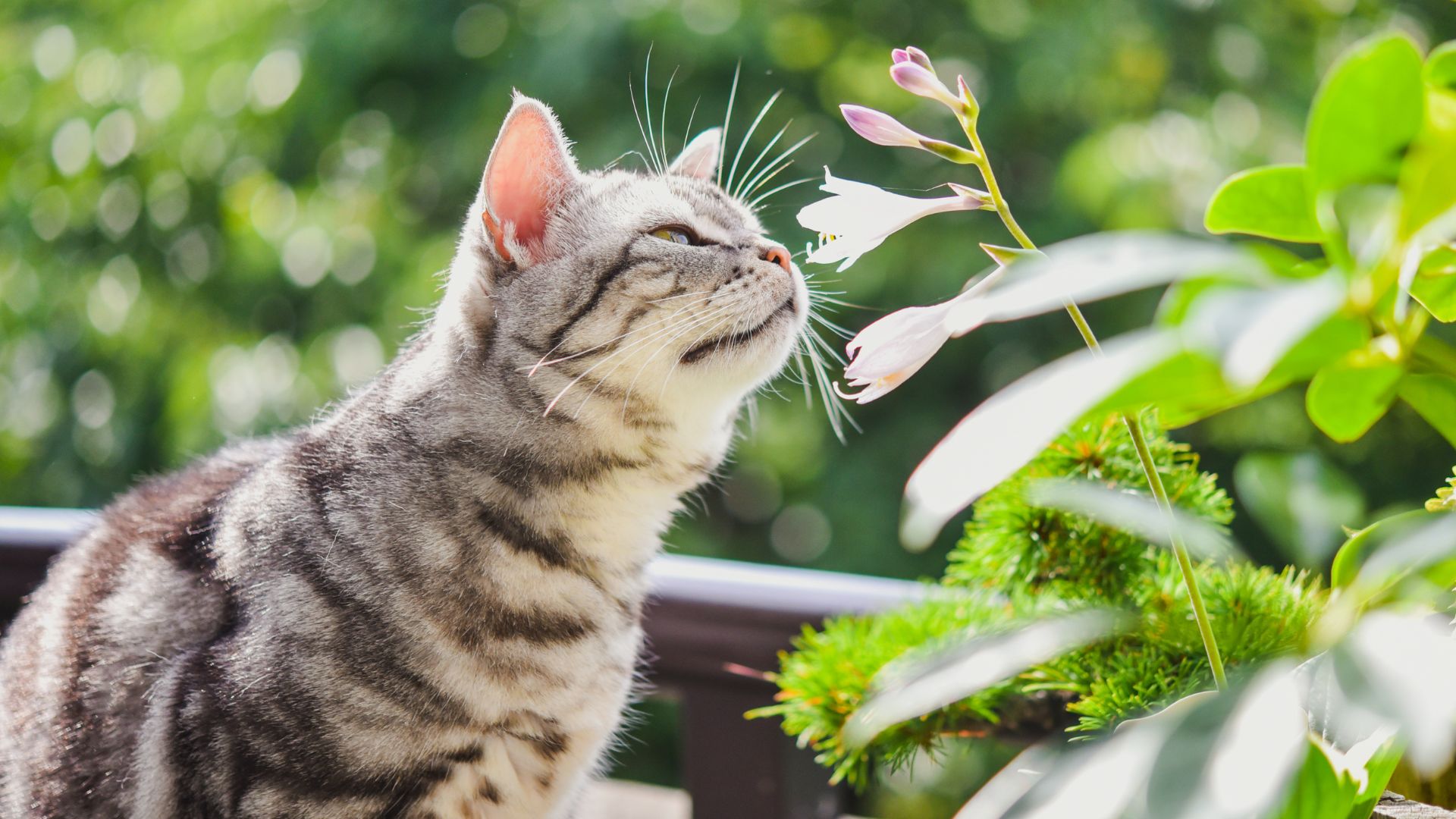
Cats have incredibly sensitive noses, and their reaction to different smells can vary greatly from ours. While we might enjoy certain fragrances, our feline friends may find them overwhelming or downright unpleasant.
In fact, there are several common scents that cats can’t stand, and exposure to them can lead to stress or discomfort. However, there are also scents that cats absolutely adore and find comforting.
In this list, we’ll explore 15 smells that cats can’t stand and 5 that they truly love, giving you insights into how their noses work and how to create a more pleasant environment for your furry companion.
1. Lemon
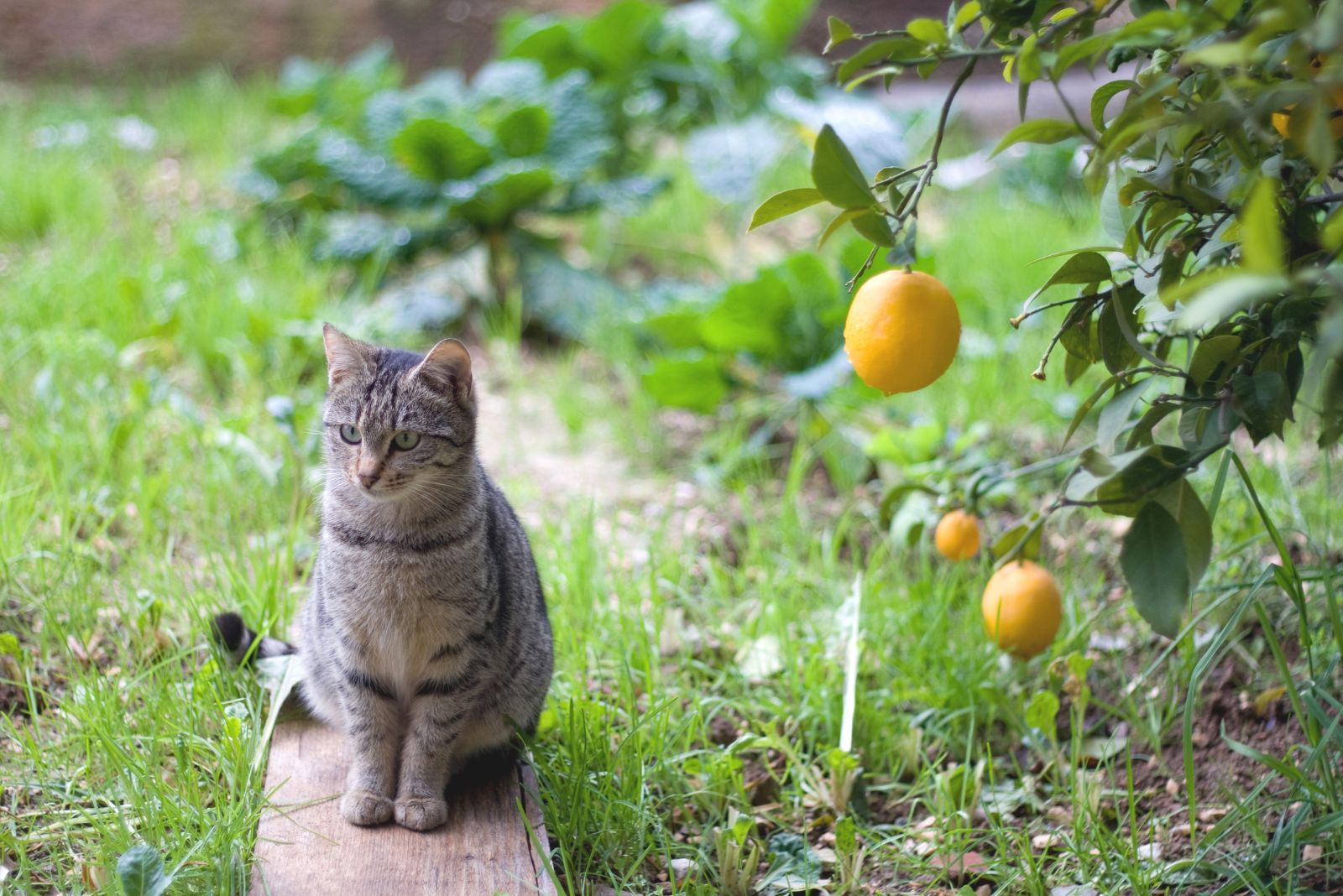
Credit: Shutterstock
One of the most common citrus fruits is the lemon, and cats really detest the smell of it! It’s not a good idea to spray lemon juice (even if diluted in water) or lemon essential oil around your feline friend as it’s toxic to them, according to the ASPCA.
So, if you have to use lemon in your home, make sure that you don’t spray it near your cat. The best thing to do is to isolate the cat in another room to avoid the risk of the cat ingesting the mixture.
If you’re looking for products or scents that can be useful in keeping your cat’s behavior under control, then keep reading, as citrus smells aren’t a good option.
2. Limes, Grapefruit, And Orange

Credit: Shutterstock
Just as with lemon and other citrus fruit, limes, grapefruit, and orange also contain oils that are toxic for cats, and therefore need to be avoided if you want to keep your feline friend safe.
Certain mixtures and sprays that contain citrus scent may be harmful for cats as they may ingest it and suffer health issues. However, many people use the peel of citrus fruit, usually an orange peel, in plant pots to keep the cats away from house plants.
Cats should stay away from the plants and they shouldn’t go near or ingest the peel as they’ll know instinctively that the scent is bad for them.
3. Essential Oils

Credit: Shutterstock
Although essential oils like lavender, tea tree, eucalyptus and others may be pleasant to you, your cat wouldn’t agree. If you’re a cat owner, then it’s important to know that cats don’t like essential oils.
However, it’s not just that they don’t like the scent of essential oils, these oils can also be very toxic for cats. This is why you need to be careful if you have a furry roommate.
By using essential oils in your environment, there is a potential risk of putting your feline friend in danger because inhaling these oils can cause respiratory issues in cats.
If your feline inhales these oils it may cause them distress, or even other symptoms such as vomiting, runny nose, and breathing difficulties.
If you notice these symptoms, it’s important to take your cat into the fresh air. However, if you suspect that the cat’s still not feeling good after a while, then you need to take the cat to the veterinarian as soon as possible.
While essential oils and diffuser oils are bad for our cat friends, pheromone diffusers designed for cats may be used in order to help your pet to be calm..
4. Menthol

Credit: Shutterstock
Mint is probably one of the simplest plants to cultivate. It’s very easy to maintain and it tends to spread swiftly. However, you may want to pay close attention to it if you’re a cat parent.
This is because mint is very toxic for cats and it can cause them harm. So, for your cat’s sake, make sure that you don’t expose her to mint varieties such as peppermint, spearmint, and others.
5. Pine
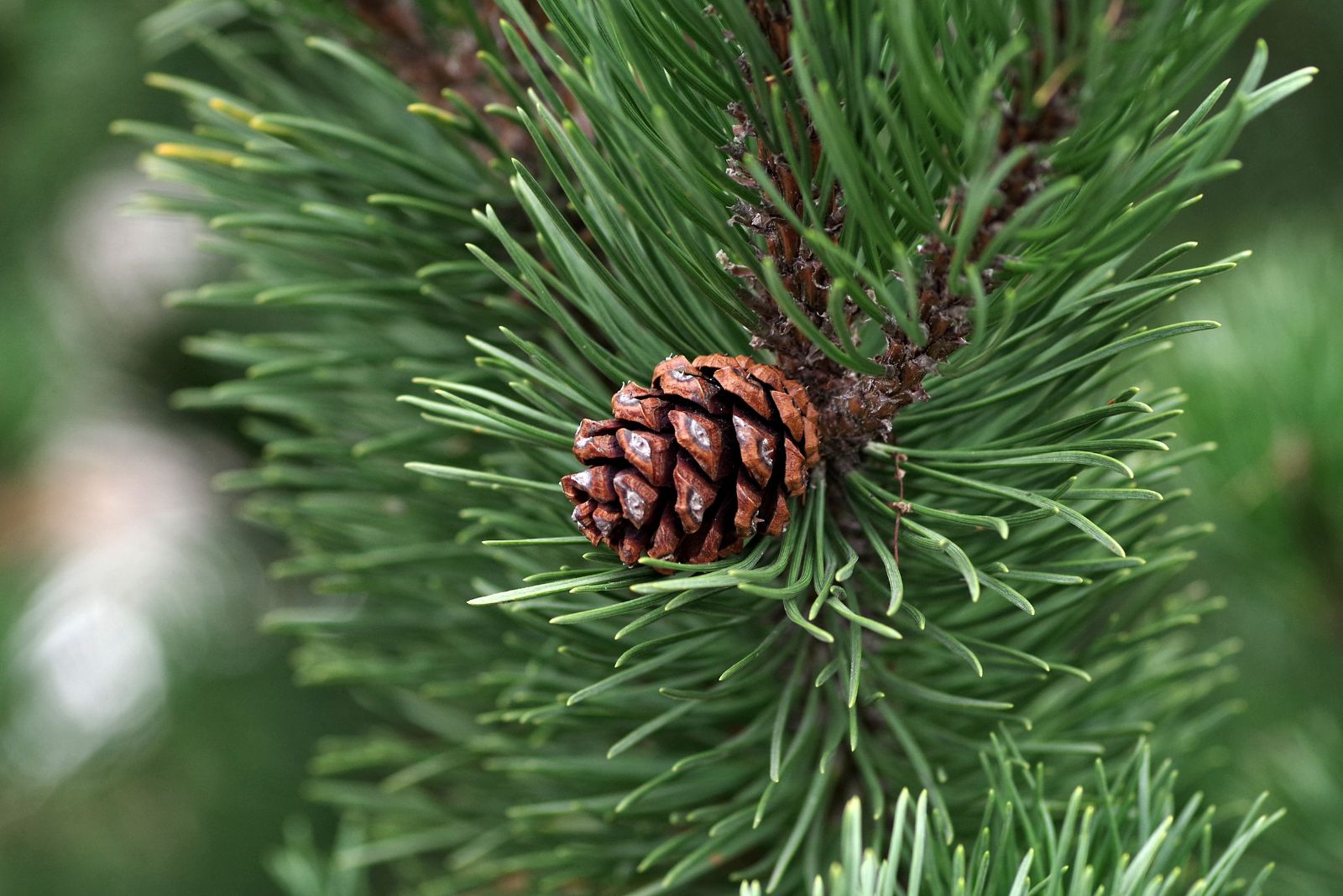
Credit: Shutterstock
Pine is a beautiful scent, especially during the winter. However, it’s not pleasant for everyone; our feline friends hate the pine scent and they will do their very best to avoid it.
Cats detest the pine smell and are very likely to leave the room and go somewhere where the scent isn’t so strong.
So, if you’re a cat owner, make sure that you avoid using a pine scent, or only use it in places where you don’t want your cat to go.
The pine scent can be useful if you’re dealing with neighboring cats coming into your yard all the time. If you set a pile of pine needles or plant a pine tree near your home, the pesky cats should avoid visiting your yard again.
6. Bananas

Credit: Shutterstock
Most cats don’t like the smell of bananas. According to some experts, it’s actually the potassium in bananas that bothers cats and therefore they avoid it.
7. Spices

Credit: Shutterstock
Certain spices can be very toxic and unhealthy for cats. A cat’s diet shouldn’t contain anything salty or spicy, such as cayenne pepper or similar, because it may cause digestion problems.
Smelling spices tells cats to avoid them because they’re dangerous for them. The reason certain things are so spicy comes down to a molecule called capsaicin, which is highly toxic for felines.
This molecule can be found in various cat deterrents that are used to keep cats away from certain places.
8. Lavender
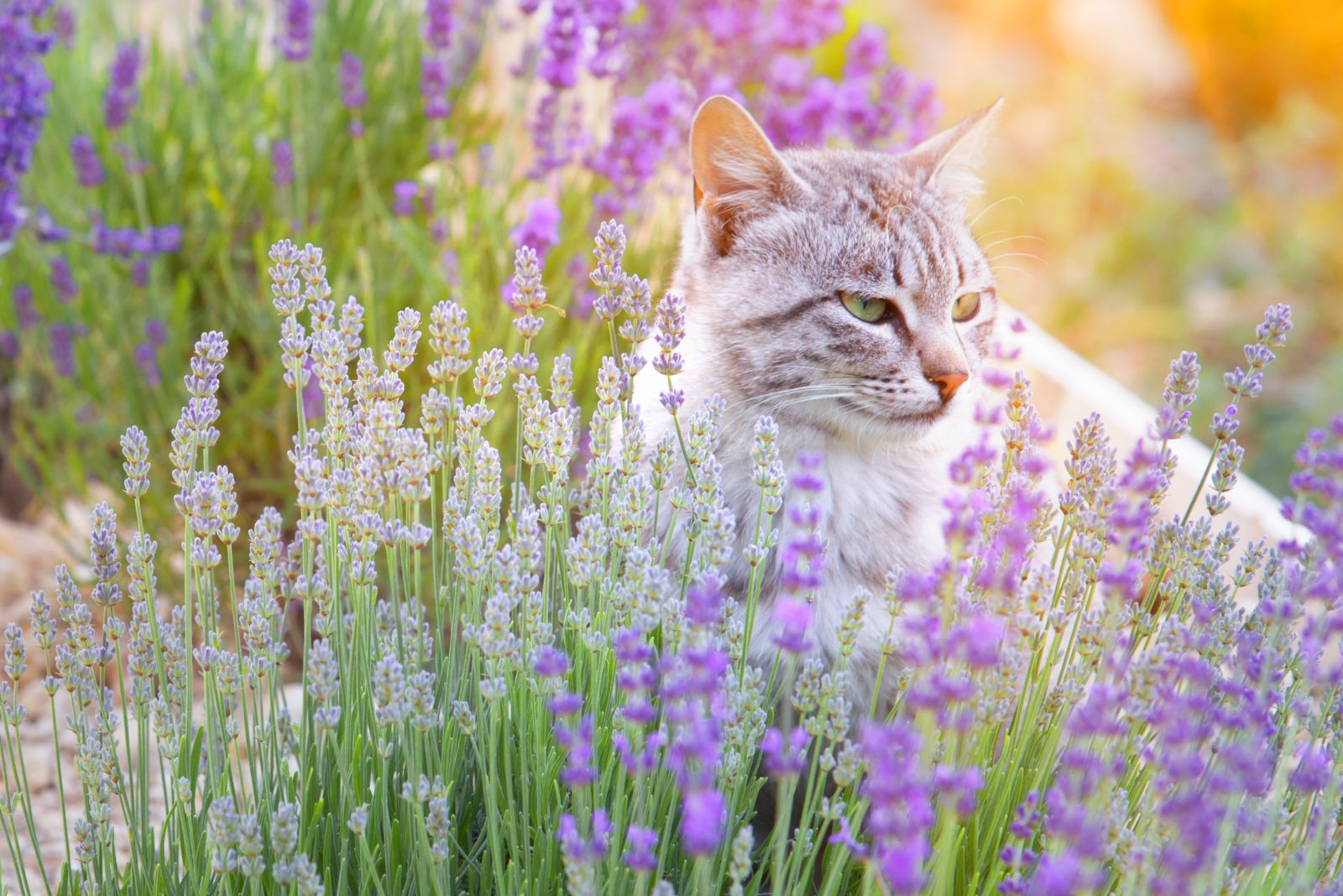
Credit: Shutterstock
Another common fragrance that cats hate is lavender! According to the ASPCA, lavender is also toxic for cats, which is why they usually avoid it.
However, lavender is a common household scent because it can be used as a pest deterrent, to keep animals such as insects away.
Planting lavender in pots or in your yard can help keep other unwanted cats away from your property. As far as your indoor area is concerned, you can put lavender or lavander-scented products in places you don’t want your cat to go.
You can even make a DIY lavender cat repellent that can also be helpful with other animals and insects; you’ll need lavender, water, and vinegar.
However, when using this DIY repellent, you have to be careful and avoid spraying it near your cat friend because it may cause problems if ingested.
9. Eucalyptus

Credit: Shutterstock
Most cats hate the smell of eucalyptus, which may surprise you, but it’s true. So, if you’re a cat parent, don’t be surprised if you notice that your cat behaves strangely near a eucalyptus.
It’s good to have this plant in the yard to deter other stray cats, but if you notice that your indoor cat doesn’t like eucalyptus, it’s best to get rid of it because it may be harmful.
10. Other Herbs And Plants
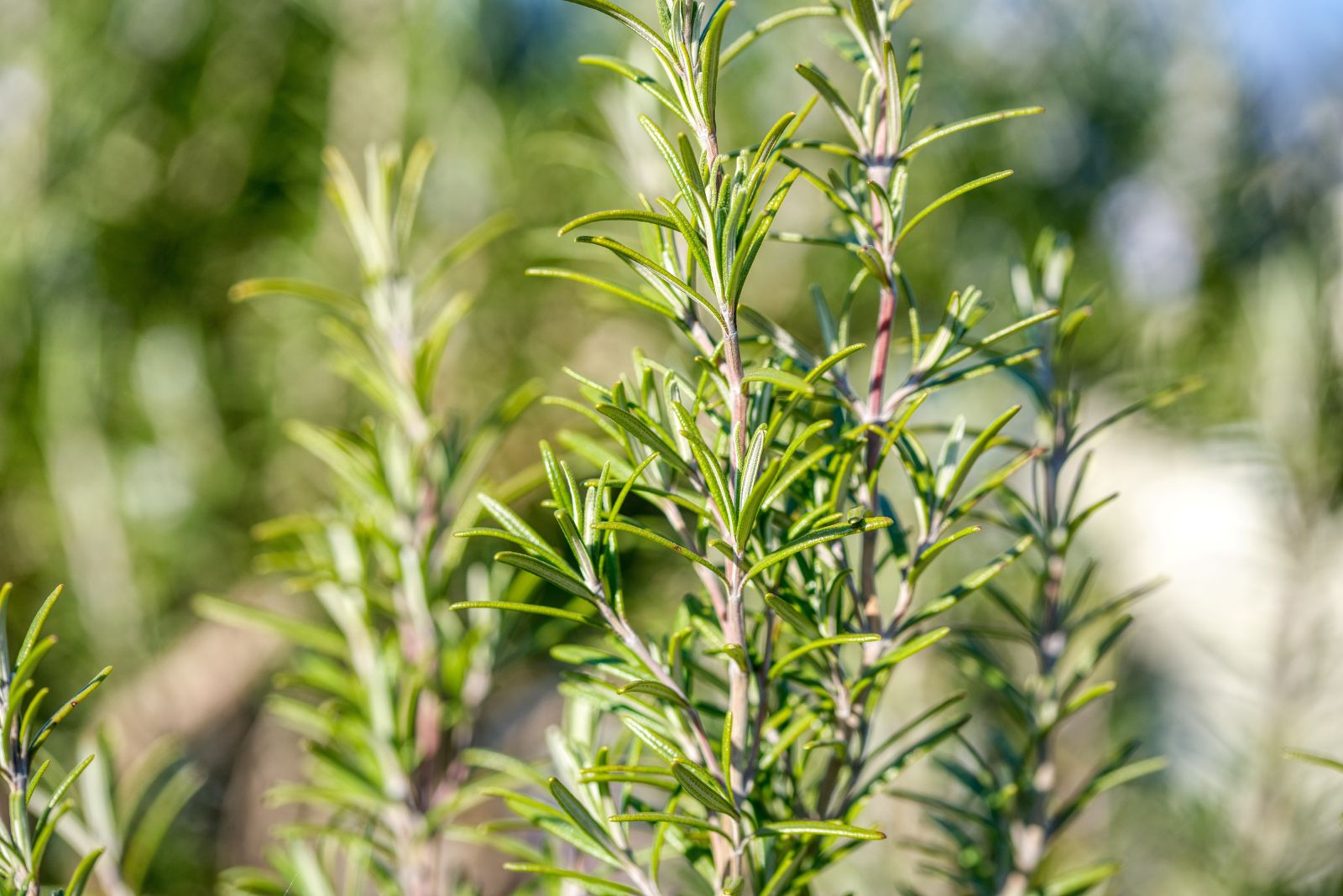
Credit: Shutterstock
There are other herbs and plants such as rosemary, wintergreen, thymes, rue, geranium, lavender, marigolds, pennyroyal, coleus canina, and others that cats also hate.
The main reason for this is that these plants can be toxic and harmful for cats. Therefore, if you want to keep your feline safe and healthy, it’s better to avoid these scents near your cat.
If you want to use herbs and plants in order to keep stray cats away from your yard, these are the perfect choice.
11. Vinegar
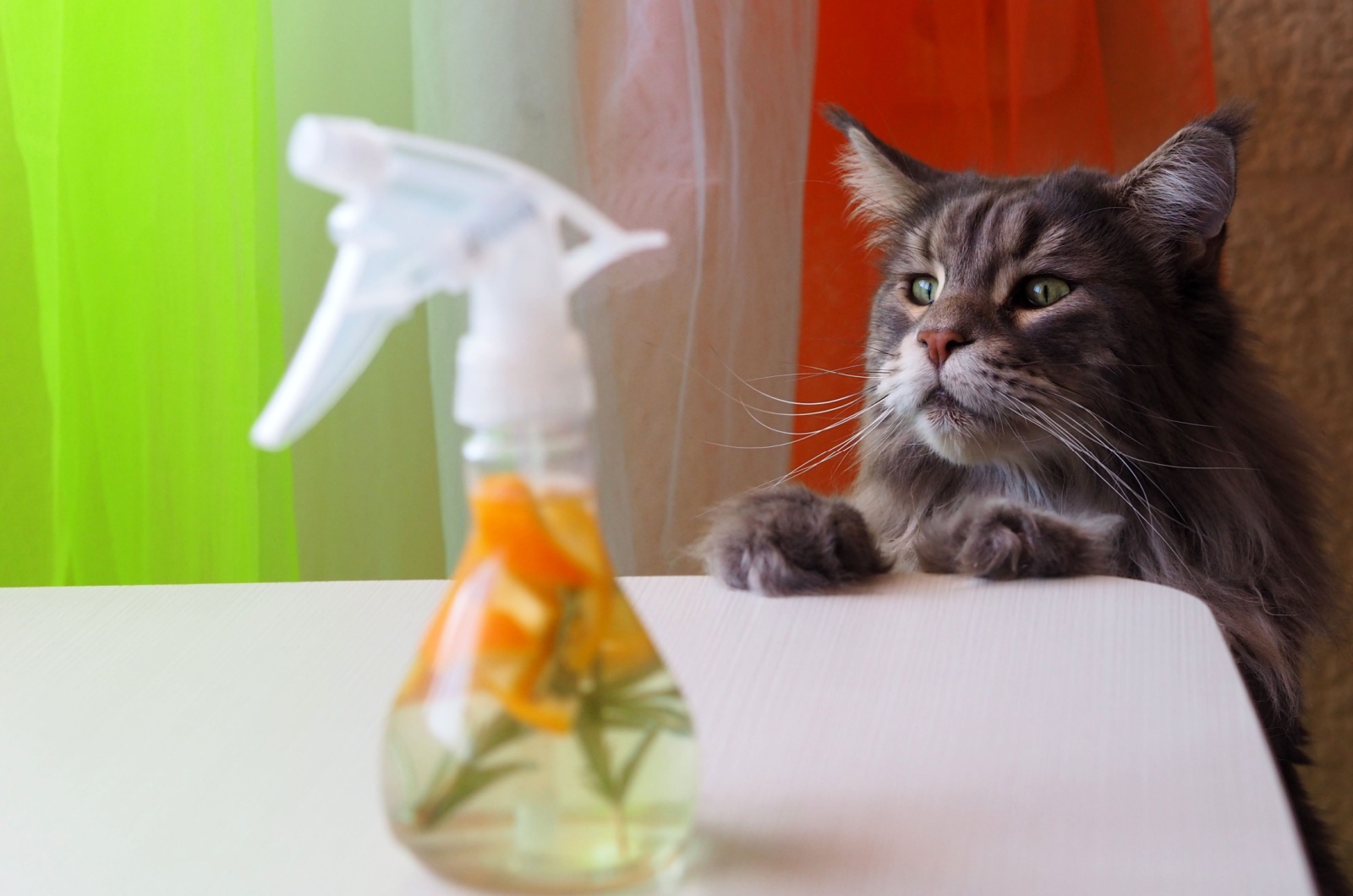
Credit: Shutterstock
Natural white vinegar has quite a strong smell to humans, and it’s even stronger to cats because they’re more sensitive to scents. This is why vinegar is one of the most efficient insect and animal repellents.
Cats usually avoid vinegar because of the overpowering smell, therefore you can use it in order to keep the cat away from certain spots or things you don’t want it to go near.
Only natural white vinegar will be an effective deterrent; apple cider won’t keep the cats away as it has a sweeter smell.
Even though natural white vinegar has a strong smell, different cats may react differently to it. For example, some cats may urinate on a spot sprayed with vinegar, trying to replace and dominate the scent.
If this happens, then look for another solution. There are a lot of other smells that cats hate which can be used as a cat deterrent, and they can be found right in this article, so keep reading!
12. Dirty Litter Box
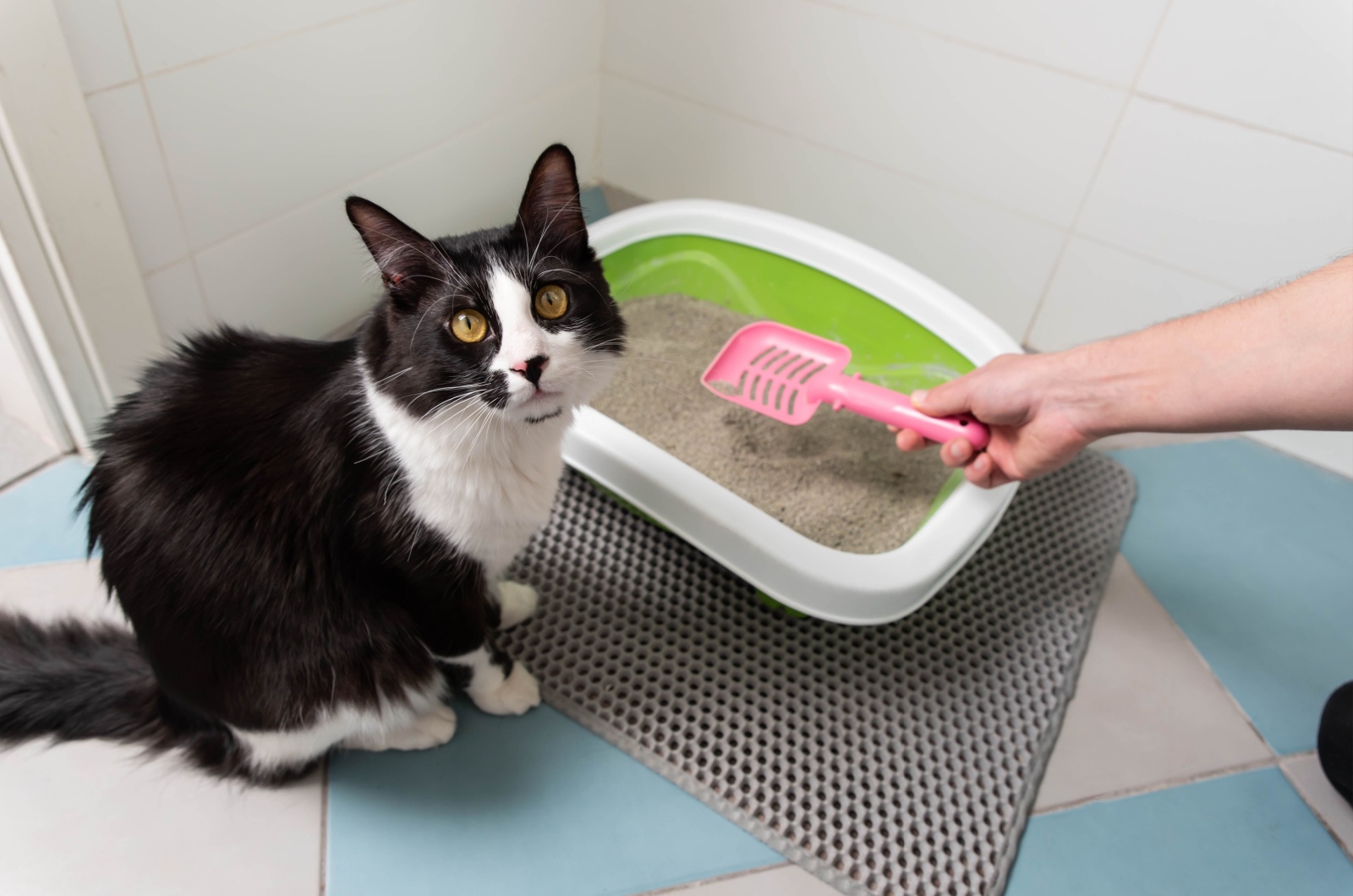
Credit: Shutterstock
Almost every cat owner knows that cats are considered to be one of the cleanest animals. Therefore, they need everything to be clean. And they don’t like the smell of dirty litter box, but then again, who does?
If your cat’s litter box is dirty and producing unpleasant odors, then don’t be surprised if your cat decides to “make a mess” outside of the litter box.
Furthermore, a dirty litter box may affect other aspects of a cat’s life. For example, it may affect the cat’s appetite to the point where the cat even stops eating.
This can happen if the food bowl and a litter box are too close to one another. The cat may stop eating due to unpleasant odors, which is why it’s important to keep these two things apart, and most importantly, clean the litter box and change the litter regularly.
13. Clove

Clove, with its strong and pungent aroma, is a scent that cats typically detest. The smell is too overpowering for their sensitive noses, and they tend to avoid anything that carries its fragrance. While clove can be beneficial for humans as a spice or even in certain natural remedies, it is not good for cats.
The essential oils and compounds in clove can be toxic if ingested, leading to symptoms like vomiting or more severe health issues. For these reasons, clove is generally considered a scent and substance to keep far away from cats.
14. Onion
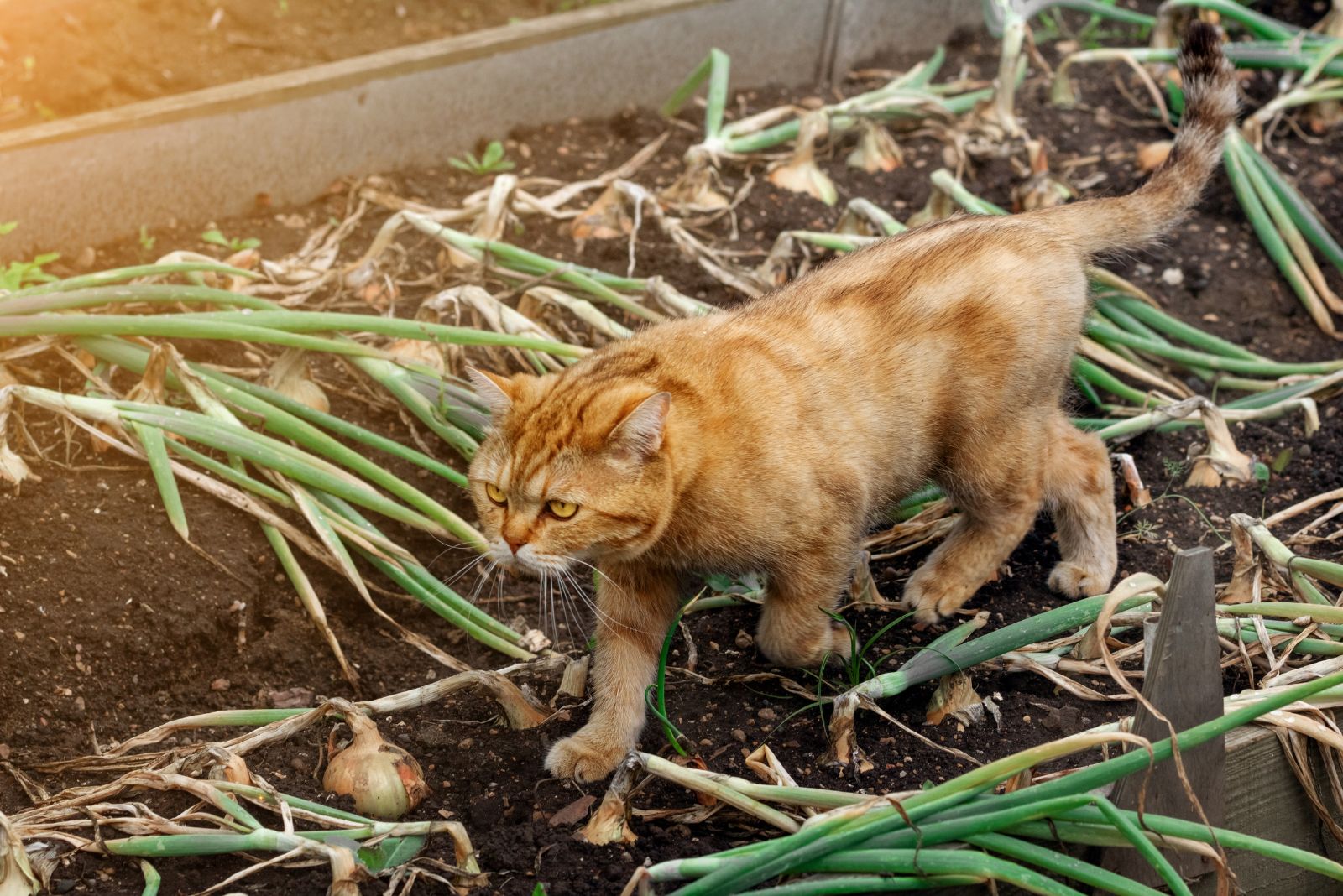
Onion has a sharp, potent smell that cats generally dislike and will steer clear of. Beyond its unappealing scent, onions are also toxic to cats. Even small amounts can cause serious health problems, such as anemia, gastrointestinal distress, and overall weakness.
Cats lack the ability to process certain compounds found in onions, which makes this pungent vegetable especially dangerous. Because of both its smell and its toxicity, onion is a definite no-no for feline environments.
15. Cinnamon

While cinnamon is a warm, sweet scent for humans, it’s actually one that cats strongly dislike. The strong, spicy aroma of cinnamon can be overpowering to their sensitive noses, often causing discomfort.
In fact, many household products containing cinnamon can irritate a cat’s respiratory system and lead to allergic reactions. It’s best to avoid using cinnamon-scented candles, oils, or air fresheners around your feline friend to ensure they’re not exposed to a scent that could cause them distress.
16. Catnip
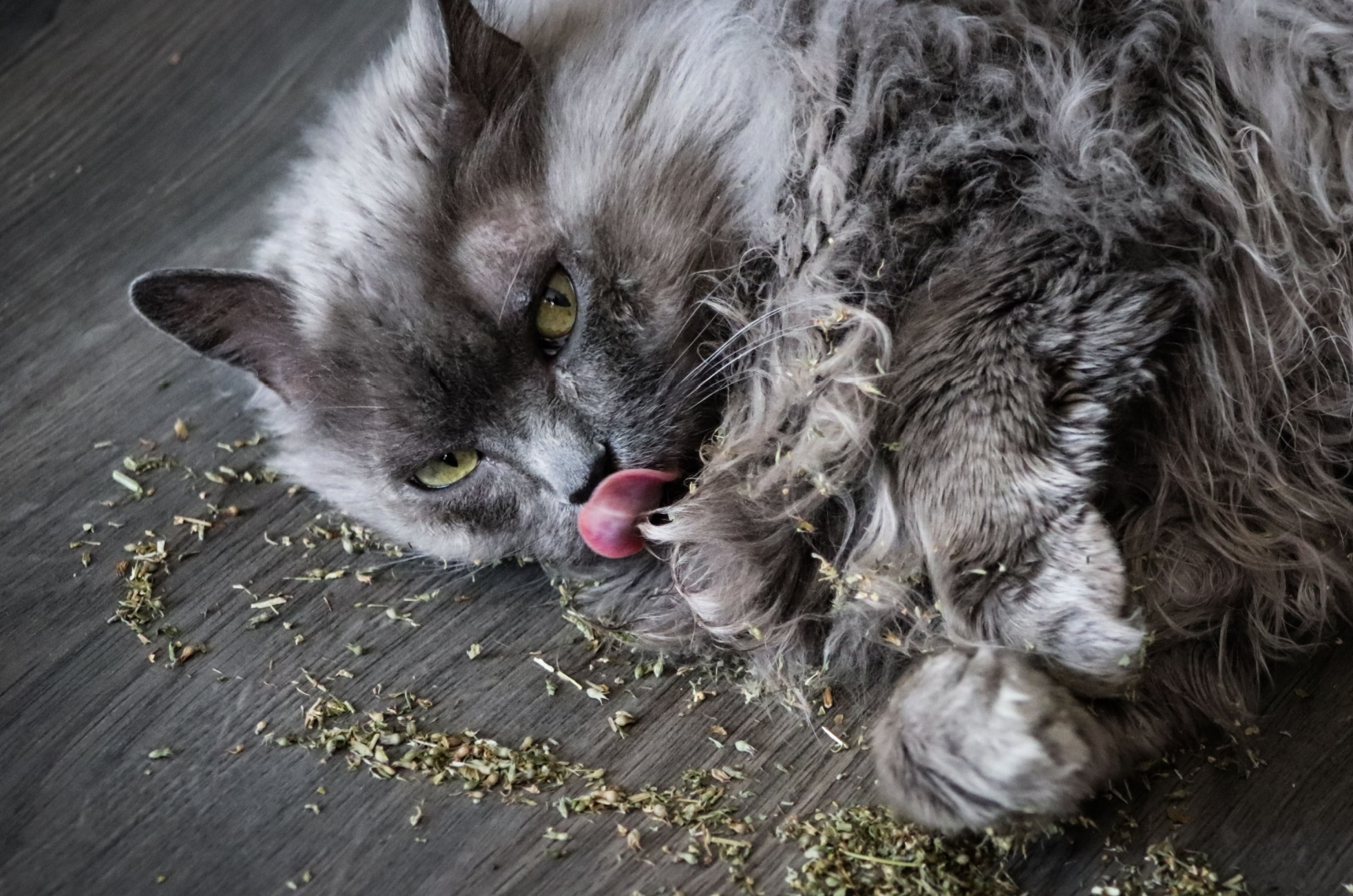
Credit: Shutterstock
Cats are crazy for catnip, and most cat toys and other cat accessories contain this ingredient. Catnip can prompt a range of different reactions in cats due to the chemical called nepetalactone. The scent of catnip affects the cat positively and makes them happy.
17. Roses
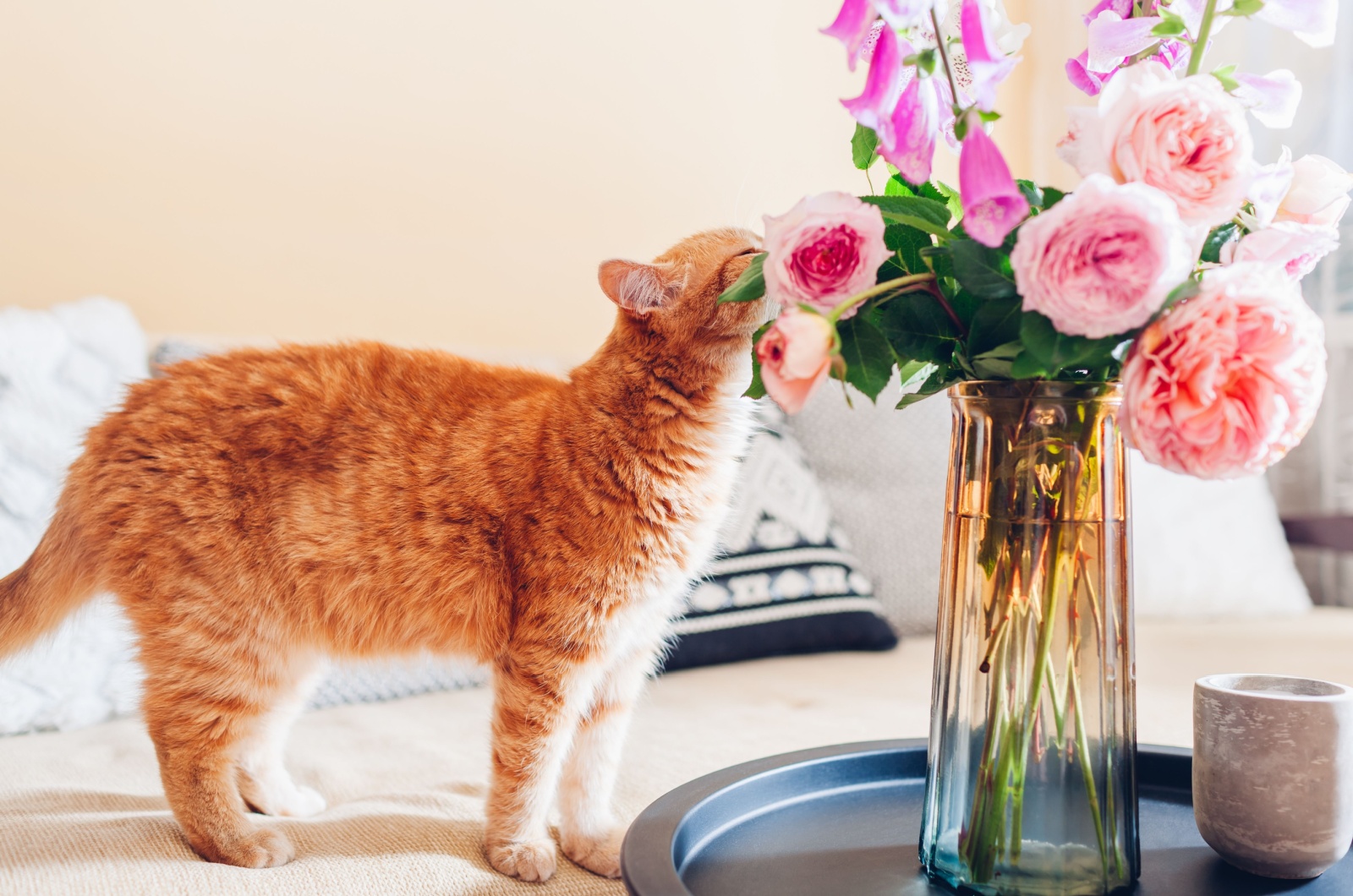
Credit: Shutterstock
Roses have a smell that is pleasant for both humans and cats. It’s completely safe for cats and it’s not toxic, which is very important. Roses have a relaxing effect, just be aware of thorns when near them!
18. Valerian root
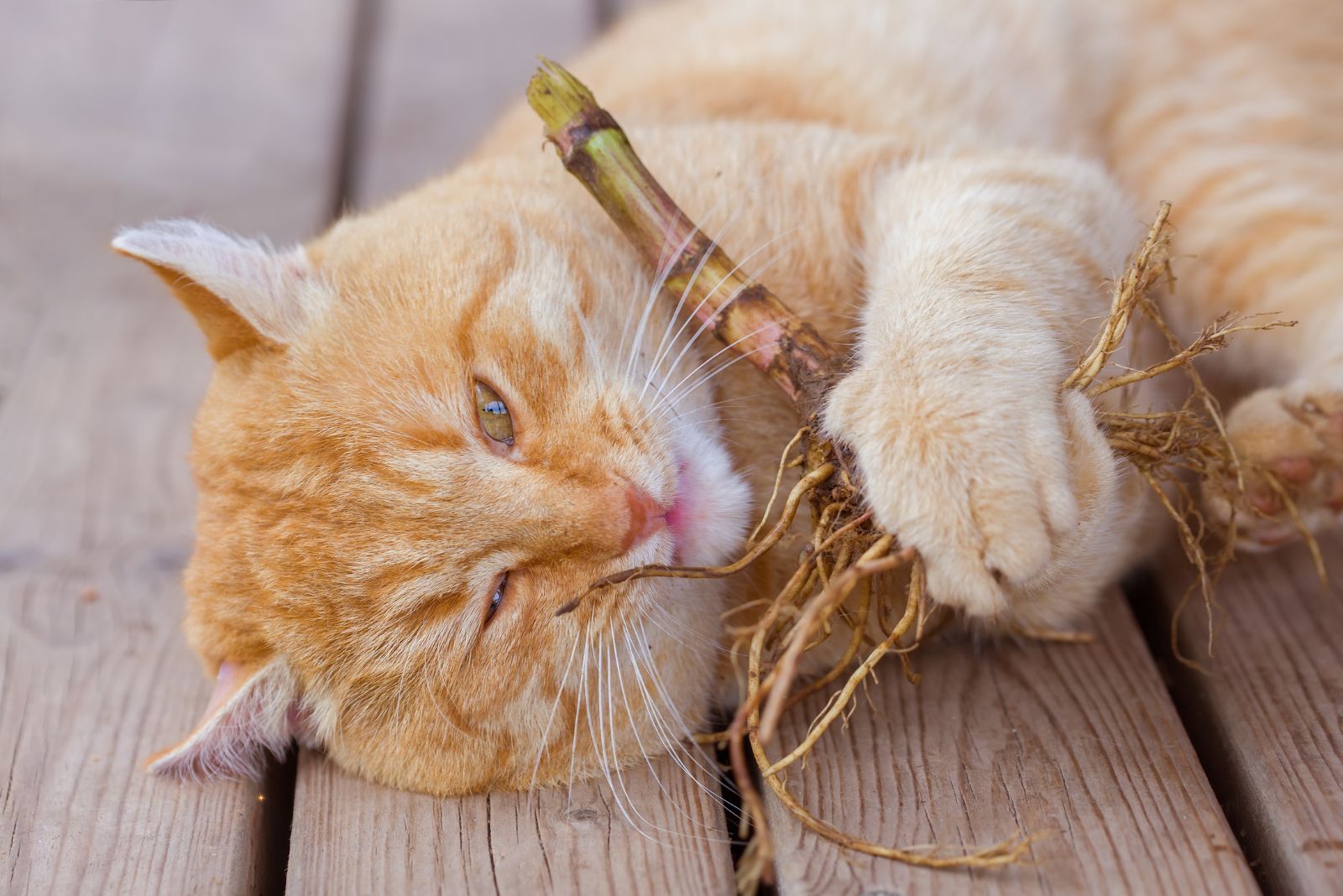
Valerian root has a unique and musky aroma that many cats find irresistibly appealing. Much like catnip, valerian can excite or stimulate a cat’s senses, often resulting in playful or energetic behavior.
Some cats may even roll on valerian root or try to chew it. While it’s generally safe in small amounts, moderation is key. Overexposure can lead to excessive stimulation or mild stomach upset. Overall, valerian root is a fun and safe occasional treat for cats, but it’s best to use it sparingly to ensure they don’t overdo it.
19. Parsley
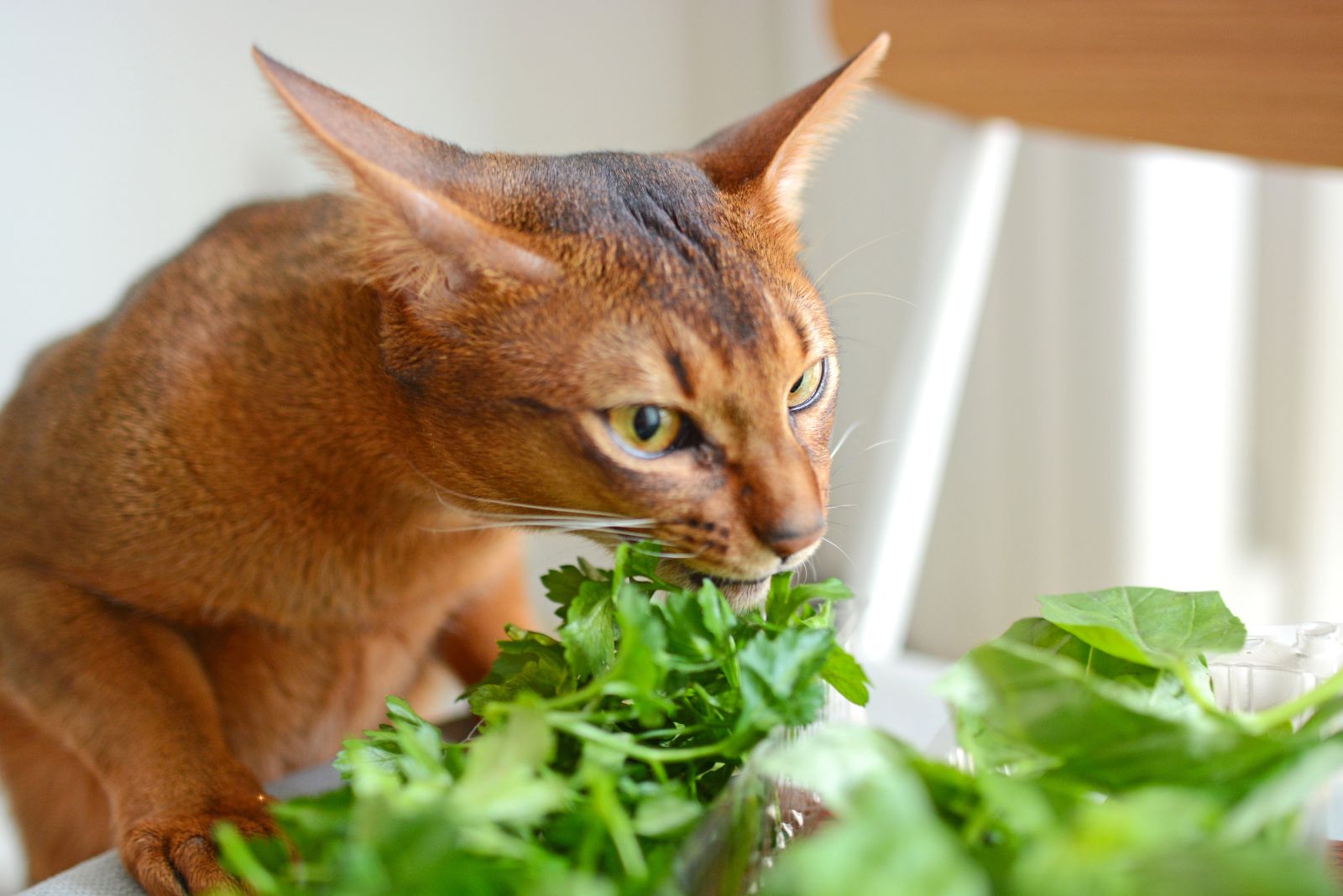
Parsley’s mild and fresh scent, along with its grassy taste, is often enjoyed by cats. Many cats will nibble on parsley leaves, attracted to its soft texture and pleasant flavor. As long as it’s offered in small quantities, parsley can be a healthy addition to their diet, providing vitamins and a bit of fiber.
However, excessive amounts could cause digestive upset, so it’s best to treat parsley as an occasional supplement rather than a daily staple. When given responsibly, parsley can be a beneficial and enjoyable treat for your feline friend.
20. Chamomile
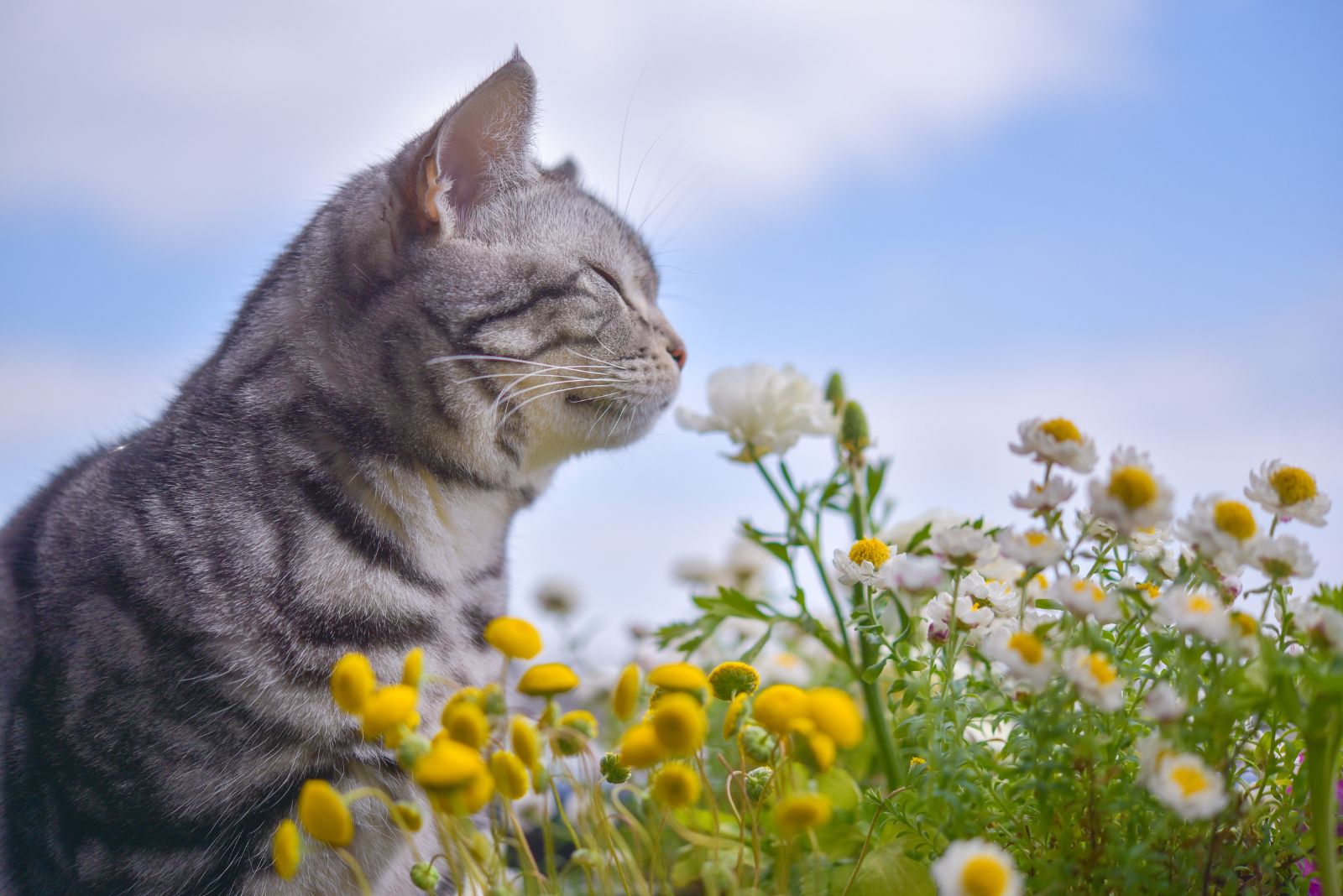
Chamomile is one of the few floral scents that cats actually enjoy, thanks to its calming and soothing properties. Often associated with relaxation, chamomile can help cats feel more at ease, especially when they’re stressed or anxious.
Whether it’s the smell of chamomile tea or the fresh plant, cats tend to be drawn to it. This makes chamomile an excellent choice for helping calm your pet during stressful situations, such as trips to the vet or during thunderstorms.

